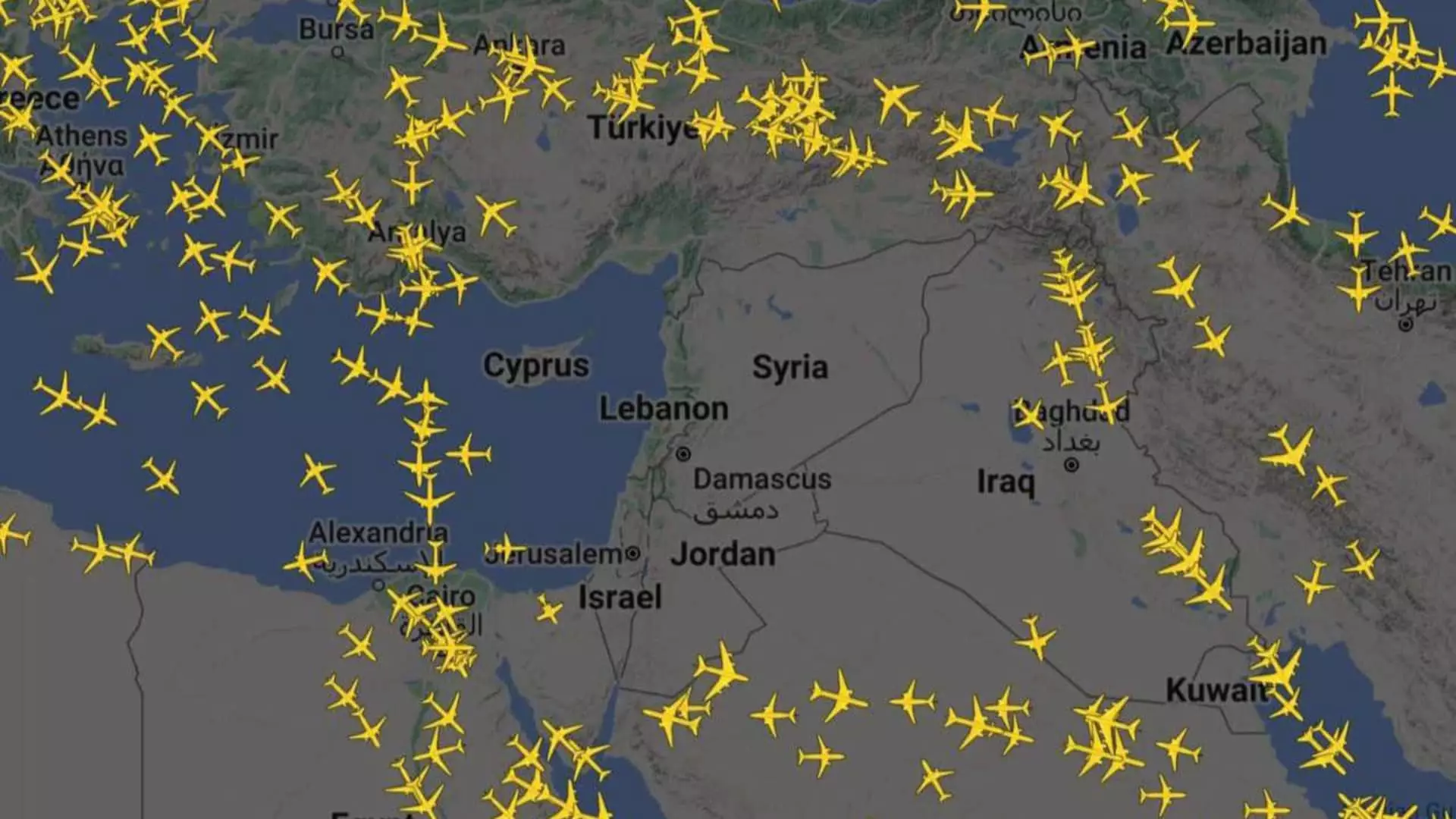The recent closure of airspace in the Middle East due to Iran’s launch of drones towards Israel has had a significant impact on flights in the region. United Airlines, which had just resumed service to Tel Aviv after previous suspensions, was forced to cancel its Newark to Tel Aviv flight. Jordan and Iraq also closed their airspace, causing further disruptions for airlines operating in the area.
In response to the situation, United Airlines stated that they are closely monitoring developments and will make decisions regarding upcoming flights with a focus on the safety of their customers and crews. This cautious approach is understandable given the unrest in the Middle East and the potential risks involved in operating flights in the region. The airline’s decision to cancel its flight to Amman, Jordan, further demonstrates the impact of the situation on flight operations.
As a result of the airspace closures, flight-tracking site Flightradar24 reported multiple diversions of flights bound for Tel Aviv and Amman. Several airlines, including El Al, Emirates Airline, Air France, British Airways, and Lufthansa, canceled flights scheduled for Sunday. El Al alone canceled more than 20 flights, with some flights diverting to alternative airports such as Bangkok.
The ongoing closure of airspace in the Middle East has created a sense of uncertainty for air travel in the region. With no clear indication of when flights will resume and concerns about safety and security, airlines are faced with difficult decisions regarding their operations. Passengers are advised to stay informed and to follow guidance from airlines regarding their travel plans.
The recent airspace closures in the Middle East have had a significant impact on flights to and from the region. Airlines such as United Airlines, El Al, Emirates Airline, Air France, British Airways, and Lufthansa have been forced to cancel or divert flights, disrupting travel schedules and causing inconvenience for passengers. As the situation continues to evolve, it is important for airlines and passengers to stay informed and to prioritize safety and security in their travel plans.

Leave a Reply